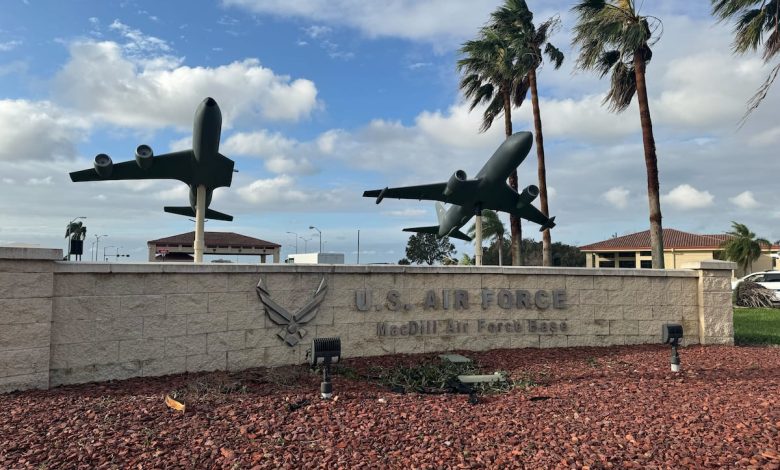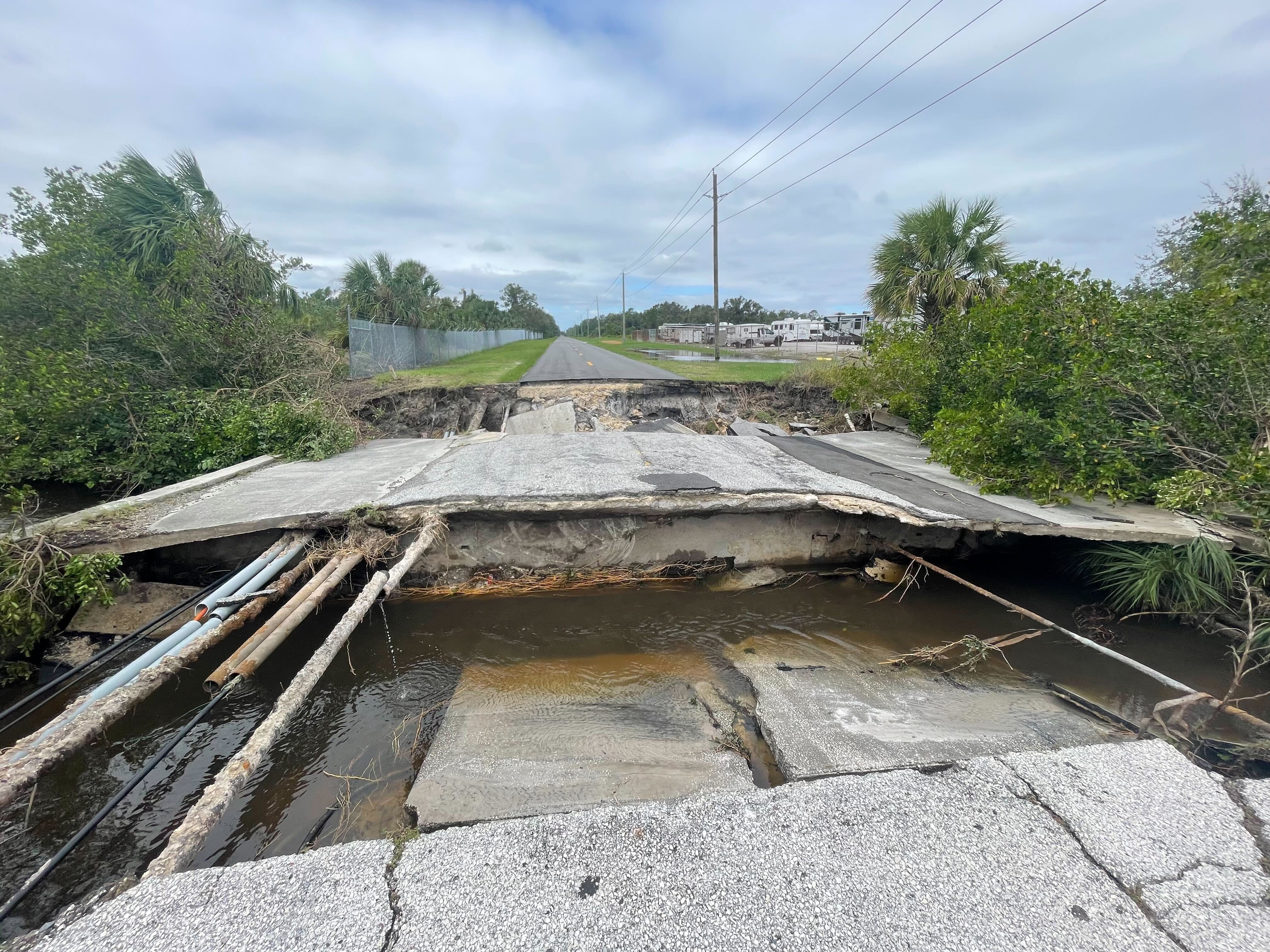MacDill dodges major storm damage as people, planes remain evacuated

MacDill Air Force Base in Tampa, Florida, saw significant rain and strong winds as Hurricane Milton cut across the state Wednesday night, but the base appears to have avoided the worst of the storm.
As of Thursday, trees are down, some roads are impassable and low-lying areas are flooded, said Capt. Kaitlin Butler, chief of public affairs for the 6th Air Refueling Wing. However, the flooding did not reach any of the base’s buildings, she said, and damage appears to be limited. No injuries have so far been reported.
“We are incredibly fortunate to have been spared the expected storm surge, and the winds did not gust any stronger than they did,” Col. Ed Szczepanik, commander of the 6th Air Refueling Wing, said in a video posted on social media Thursday.
But with roads still riddled with storm debris, evacuated MacDill personnel and families cannot return yet, Szcezpanik said.
Milton terrified many in the region earlier this week as it swiftly grew to Category 5 status, coming only two weeks after Hurricane Helene slammed into the northwestern part of Florida and left a deadly path of destruction across the Southeast.
But wind shear, or a sudden change in the wind’s direction that can cause turbulence for airplanes, began to weaken Milton as it approached Florida. It ended up tracking to the south and making landfall as a Category 3 hurricane near Siesta Key, about an hour south of Tampa.
While the storm dumped a significant amount of rain on still-saturated MacDill and winds reached more than 90 miles per hour, the base was fortunate that a storm surge didn’t materialize the way it did during Helene, Butler said. Helene’s storm surge reached a record-breaking 7 feet, 9 inches in some places on base, causing floods and knocking out power to the base.
MacDill remains closed and largely evacuated, and it was not yet known when people and planes will return, Butler said. The limited evacuation order will remain in place at least through Thursday, she said, to keep people safe and ensure they don’t end up getting caught on dangerous or impassable roads trying to get back to MacDill.
A hurricane recovery team is now working its way through MacDill identifying and addressing damage or potentially dangerous spots, Butler said.

MacDill, home of the 6th and 927th air refueling wings and headquarters of U.S. Special Operations Command and U.S. Central Command, has about 5,250 service members and 1,350 civilian personnel, as well as family members who live on base.
As Milton approached Florida over the weekend after forming in the Gulf of Mexico, the base began to evacuate its aircraft and personnel. Two of the base’s KC-135 Stratotankers that couldn’t be flown out were stored in hangars, while 13 others were evacuated to McConnell Air Force Base in Kansas. Other KC-135s are conducting operational missions elsewhere.
About 185 base personnel are operating out of an emergency operations center at Raymond James Stadium, the Air Force said.
Stephen Losey is the air warfare reporter for Defense News. He previously covered leadership and personnel issues at Air Force Times, and the Pentagon, special operations and air warfare at Military.com. He has traveled to the Middle East to cover U.S. Air Force operations.
Read the full article here







